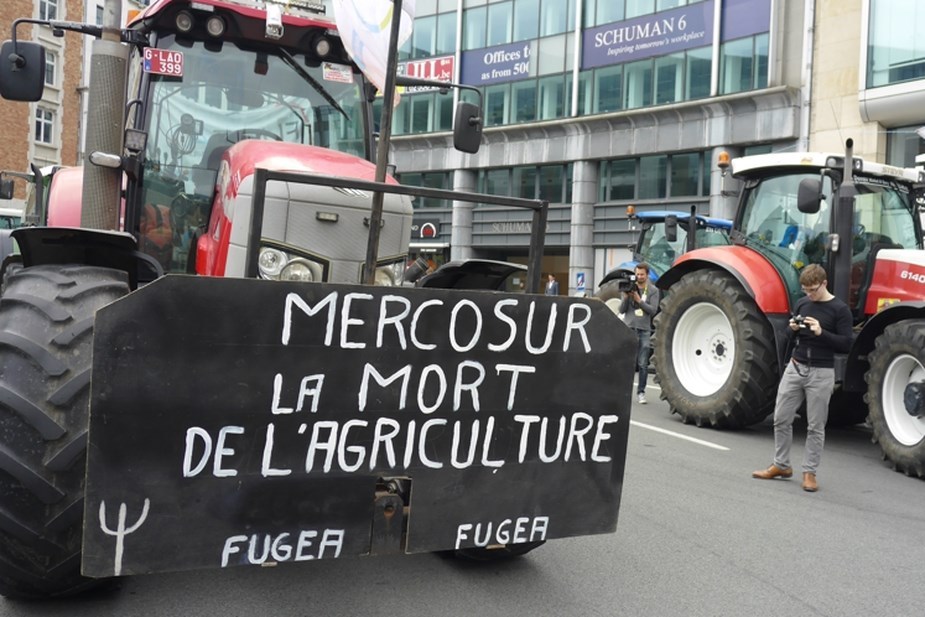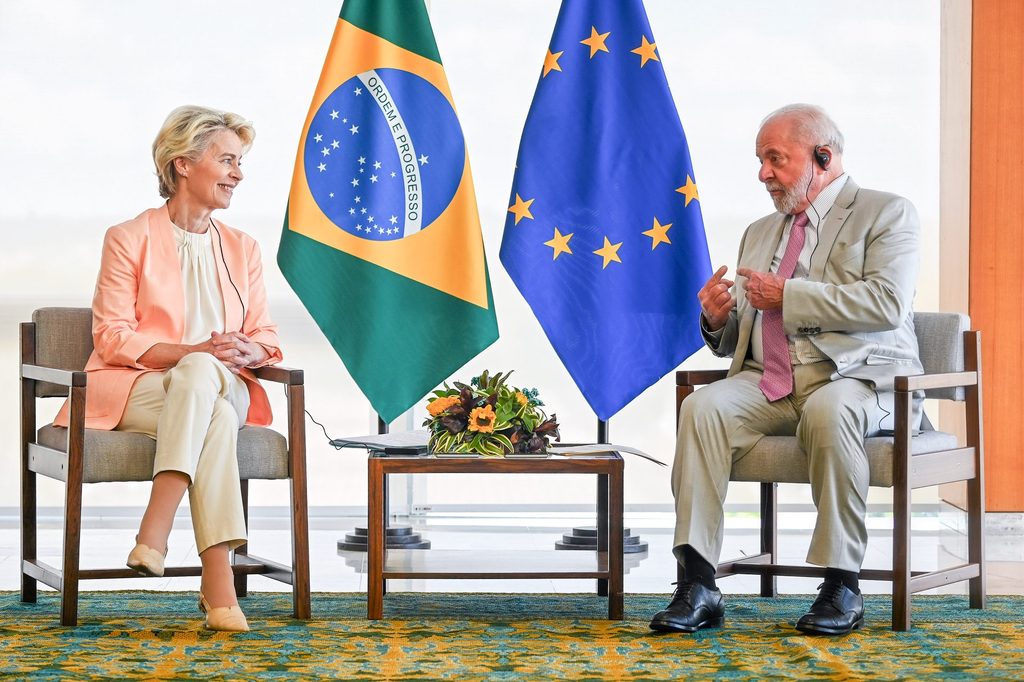European Commission President Ursula von der Leyen landed in Brazil today to attempt to revive a controversial trade agreement with South American countries. Negotiations have been ongoing for over 20 years.
The deal between the European Union and the Mercosur countries (Brazil, Argentina, Uruguay, and Paraguay) would help facilitate trade, especially in the field of agriculture, dropping tariffs on many goods from the South American economic bloc. A secret agreement on trade was reached in 2019, but met with a lukewarm reaction from EU Member States.
Europe’s agricultural industry is concerned about the repercussions of any potential deal. The European agricultural lobby fears that proposed zero tariffs on beef products from Mercosur countries would be “too generous”, harshly punishing EU exporters, notably Ireland and France.
Others point to the often irresponsible environmental policy of Mercosur nations. Increased demand for South American beef and other agricultural products may accelerate deforestation of the Amazon, lobbyists warn. A French report concluded that the treaty would accelerate deforestation by 5% each year, with protection clauses failing to go far enough.
Critical materials
The Commission is eager to revive the deal, especially within the context of Russia’s invasion of Ukraine. Sanctions on Russia and growing tensions with China have put the EU’s strategic independence for natural resources at risk. The EU must secure new and diverse markets for raw materials to help fuel its internal economy.

A farmers demonstration against the EU-Mercosur free trade deal, which Wallonia said it could not approve in its current state. Credit: Belga
The Mercosur treaty is not the only new trade deal that the Commission is actively pursuing. The EU is hastily trying to reach fresh agreements on trade with nations and economic blocs in Oceania, South East Asia, and Africa.
With the upcoming start of the Spanish Presidency of the Council of the EU, Spain is set to attempt to persuade France to stop blocking potential deals and to prioritise the EU’s strategic independence. However, some of the most coveted raw materials, such as Zinc and Lithium, are not covered by the deal and are found in countries which are not part of the Mercosur pact.
Related News
- Greenpeace climb up European Council to protest EU-Mercosur deal
- EU trade treaties need 'geopolitical update,' says Belgium's Prime Minister
- EU hopes to sign free trade agreement with Mercosur by July
Belgium and its European partners stand to gain significantly from a prospective trade deal with Mercosur, according to De Standaard. Large companies, especially in the chemical, pesticide, automotive, and tooling sectors would likely profit significantly from any future deal. The deal would essentially see Europe swap technical knowhow for raw materials.
Several EU Member States, as well as the Commission, are driving to push the deal through, despite the complaints of environmentalists. On the other hand, French authorities are in now rush, arguing that if the deal could wait for 23 years, it can also wait several more months to ensure the deal compliments climate goals.

